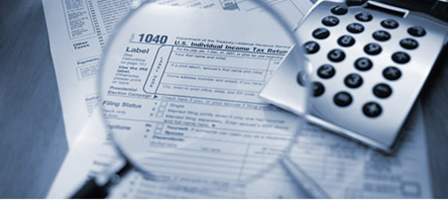TAX BENEFITS FOR MEMBERS OF THE CLERGY
Article Highlights:
- Parsonage Allowance
- Primary Residence
- Fair Market Value Limitation
- Designation by Employing Organization
- Business Expenses and Excluded Income
- Retired Clergy
- Vow of Poverty
- Self-Employment Tax Exemption
Members of the clergy may qualify for two unique tax benefits: a tax-free parsonage allowance and exemption from self-employment tax on their ministerial earnings. Here are the details for both.
Parsonage/Rental Allowance Exclusion from Income – A “minister of the gospel” can qualify for the rental allowance exclusion from income if the home or rental allowance is provided as remuneration for services that are ordinarily the duties of a minister of the gospel. The following are qualifications and details for the exclusion allowance:
- The allowance is excludable only to the extent that it is used for expenses related to the minister’s housing—e.g. rent, mortgage payments, utilities, repairs, etc.
- The rental allowance is not excludable to the extent that it exceeds reasonable compensation for the minister’s services.
- The allowance only applies to the minister’s primary residence.
- The allowance cannot exceed the fair rental value of the home, including furnishings and appurtenances such as a garage, plus the cost of utilities.
- The employing organization must designate the allowance by official action in advance of the payment. In addition, for a minister employed by a local congregation, the designation must come from the local church instead of the church’s national organization.
- The portion of the minister’s business expenses attributable to tax-free income is not deductible. This rule does not apply to home mortgage interest or taxes, which are deductible in full if the minister itemizes deductions.
- Retired clergy can exclude the rental value of a home or a rental allowance furnished as compensation for past services and authorized under a convention of their national church organization. However, the exclusion does not extend to the widow or widower of a retired clergyperson.
Minister’s Exemption from Self-Employment Tax – A minister who hasn’t taken a vow of poverty is subject to self-employment tax (SE tax) on income from services as a minister. (The church or other employing organization does not withhold Social Security or Medicare taxes from the minister’s compensation.) Non-reimbursed business expenses are deductible in computing earnings subject to SE tax, even though the expenses are deductible only as itemized deductions for income tax computation purposes.
An ordained minister may be granted an exemption from SE tax for ministerial services only. To qualify, the church employing the minister must qualify as a religious organization under Code Section 501(c)(3). Application for exemption is filed with Form 4361, Application for Exemption from Self-Employment Tax for Use by Ministers, Members of Religious Orders, and Christian Science Practitioners.
To claim the exemption from SE tax, the minister must meet all of the following conditions and file Form 4361 requesting exemption from SE tax. The minister must:
- Be conscientiously opposed to public insurance because of his or her individual religious considerations (not because of a general conscience), or be opposed because of the principles of his or her religious denomination.
- File for other than economic reasons.
- Inform the church’s or order’s ordaining, commissioning, or licensing body that he or she is opposed to public insurance if a minister or a member of a religious order (other than a vow-of-poverty member). This requirement doesn’t apply to Christian Science practitioners or readers.
- Establish that the organization that ordained, commissioned, or licensed him or her, or his or her religious order, is a tax-exempt religious organization.
- Establish that the organization is a church or a convention or association of churches.
- Not have previously elected to be covered by Social Security by filing Form 2031, Revocation of Exemption from Self-Employment Tax for Use by Ministers, Members of Religious Orders, and Christian Science Practitioners.
The Form 4361 application must be filed on or before the extended due date of the return for the second tax year for which the individual has net earnings from self-employment of $400 or more (part of which is from services as a minister). A late application will be rejected.
The time for applying starts over when a minister who was not opposed to accepting public insurance (i.e., Social Security benefits) re-enters a new ministry (e.g., adopts a new set of beliefs that include opposition to public insurance with a different church). However, the IRS has said that there is no second chance to apply for exemption by a minister who is ordained in a different church but whose belief regarding public insurance doesn’t change (i.e., the minister opposed acceptance of public insurance in both faiths).
Careful consideration should be made before applying for the exemption from SE tax since once the decision has been made, the election is irrevocable.
If you have questions related to either of these issues, please give this office a call.








Leave a Reply
Want to join the discussion?Feel free to contribute!